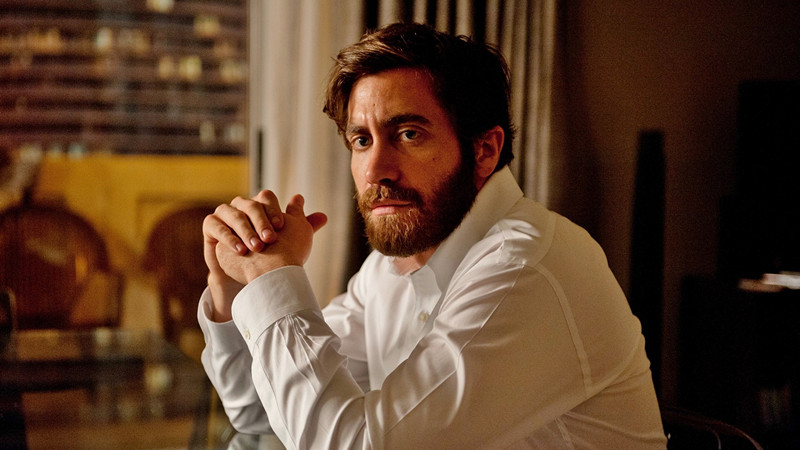
IMDB, along with Rotten Tomatoes, are perhaps the most well-known and widely used web resource when it comes to getting film recommendations. Why consult the opinion of a single critic when you can consults hundreds, if not thousands of individuals. The reputation of these sites has proven so formidable that more often than not, hype generated for a film can be both amplified and even diminished significantly through the rating system alone.
However, this system is not entirely accurate in determining a film’s quality. In IMDB, an average rating under 7.0/10 is often indicative of a film’s mediocrity. This list aims to highlight 10 such films with undeserving ratings under 7, because they are frankly so much more than mediocre, some even considered by many to be masterpieces, but for now, they sit at alarmingly low levels on IMDB. Hopefully, this list would give a much needed minor bump to their criminally low ratings.
Without further ado, these are 10 great movies rated lower than 7.0 on IMDB.
10. Drag Me to Hell (IMDB Rating: 6.6/10)
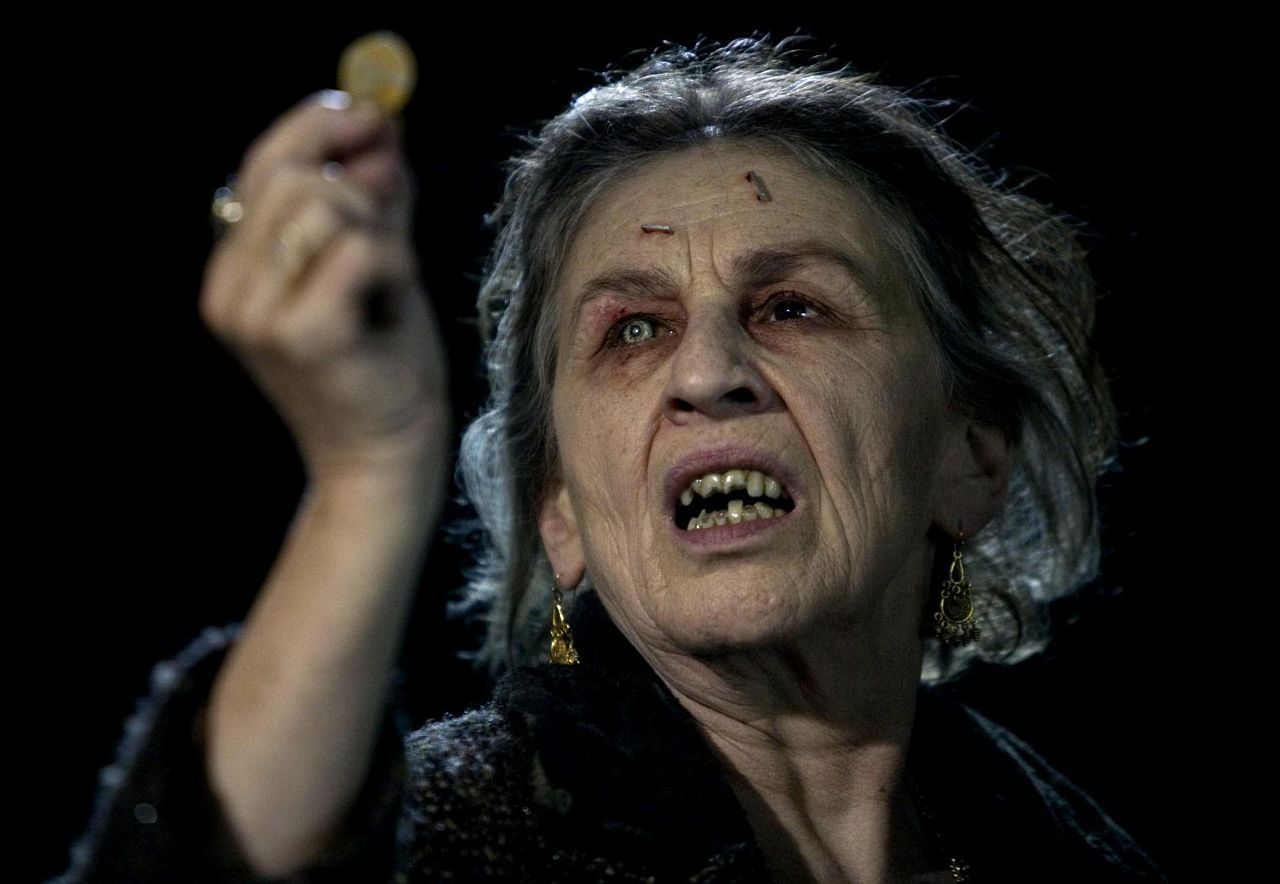
Horror is an extremely notorious genre when it comes to critical acclaim. More often than not, horror films overly concern themselves with a strong gimmick in order to attract a larger audience, an audience which frankly speaking, has already seen the lot. They build their entire narrative around that central gimmick, slapping terms like “innovative” or “unique” to its name, but ultimately, when the aforementioned gimmick is stripped away, the film is undeniably generic and indistinguishable from any other forgettable film of the genre.
Drag Me to Hell is a film that refuses to adopt any cheap gimmick to draw an audience. It even went the length to accommodate a restrictive PG-13 rating, and above all else, it’s a horror-comedy. These factors led the film to attain a 6.6 on IMDB after more than 100,000 votes. But it’s so much more than a mediocre horror film, or a mediocre film for that matter.
It more than excels in both genres it resides in. As a horror film, though it does often resort to cheap jumpscares to illicit fear, it is genuinely terrifying at times. A sequence involving a graveyard towards the end stands out as an incredibly tense moment, building a horrific atmosphere filled with suspense and terror, above all else. Additionally, the problem with most horror films is the inherent stupidity of the films’ characters.
Drag Me to Hell has none of that, the characters feel real, they’re complex, they have their own distinct personalities, and most importantly, as horror movie characters, they make smart decisions instead of exhibiting stupidity. The comedic element in the film is also extremely well done. Though not a comedy film in the traditional sense, the comedy does serve as a strong complement to the horror narrative, providing ample breathing space for audiences without coming across as tonally disconnected.
Though adopting a relatively unoriginal narrative structure as well as suboptimal mid-2000s CGI that appears dated today, Drag Me to Hell is a film that shines at both genres, being both an excellent horror film and a decent comedy, as well as a brilliant hybrid of the two, and it most definitely delivers as an overall great piece of filmmaking.
9. Stoker (IMDB Rating: 6.8/10)
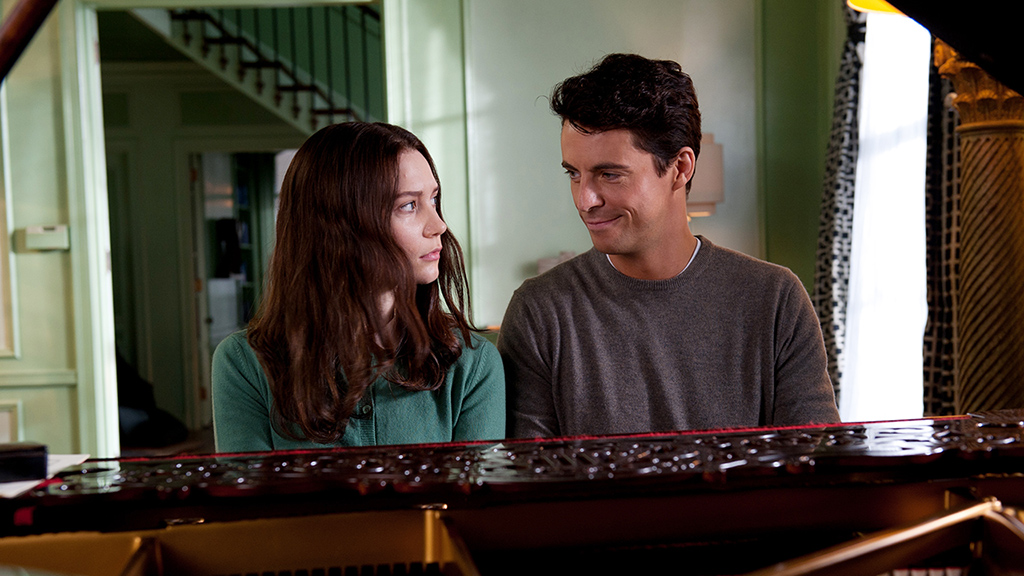
When it comes to Korean Cinema, the name Park Chan-Wook is revered by many. His films delve into the deep recesses of the human psyche, highly evocative and provocative in nature, with almost all earning cult status as well as critical acclaim on festival circuits. Stoker, being his first feature in English, boasts a complex and intricate plot, elaborate characters as well as more twists and turns in the narrative that you could count. What it doesn’t boast however, is acclaim.
The film examines the mysterious lives of a wealthy family, the Stokers, as they cope with both the sudden death of the family patriarch as well as the dubious arrival of an uncle. Though in all honesty, the mystery developed isn’t particularly as riveting or complex as in Park’s later works, Stoker’s innate mystique is still competent enough and well developed.
Nothing ever feels cheap or out-of-place, and the final act of the film, as is in any Park Chan-Wook film manages to successfully pull one over audiences, making us essentially view the film as well as the characters in a completely different light, which of course, makes repeat viewings warranted as well as infinitely more enjoyable.
Even if you, like the majority of audiences, can’t bring yourself to appreciate the film’s content and narrative for whatever reason, you could at least respect Park’s boldness for delving not only in a language, but a realm of cinema separate from his own, and yet still manage to pull fantastic performances and an arguably decent film.
8. Panic Room (IMDB Rating: 6.8/10)
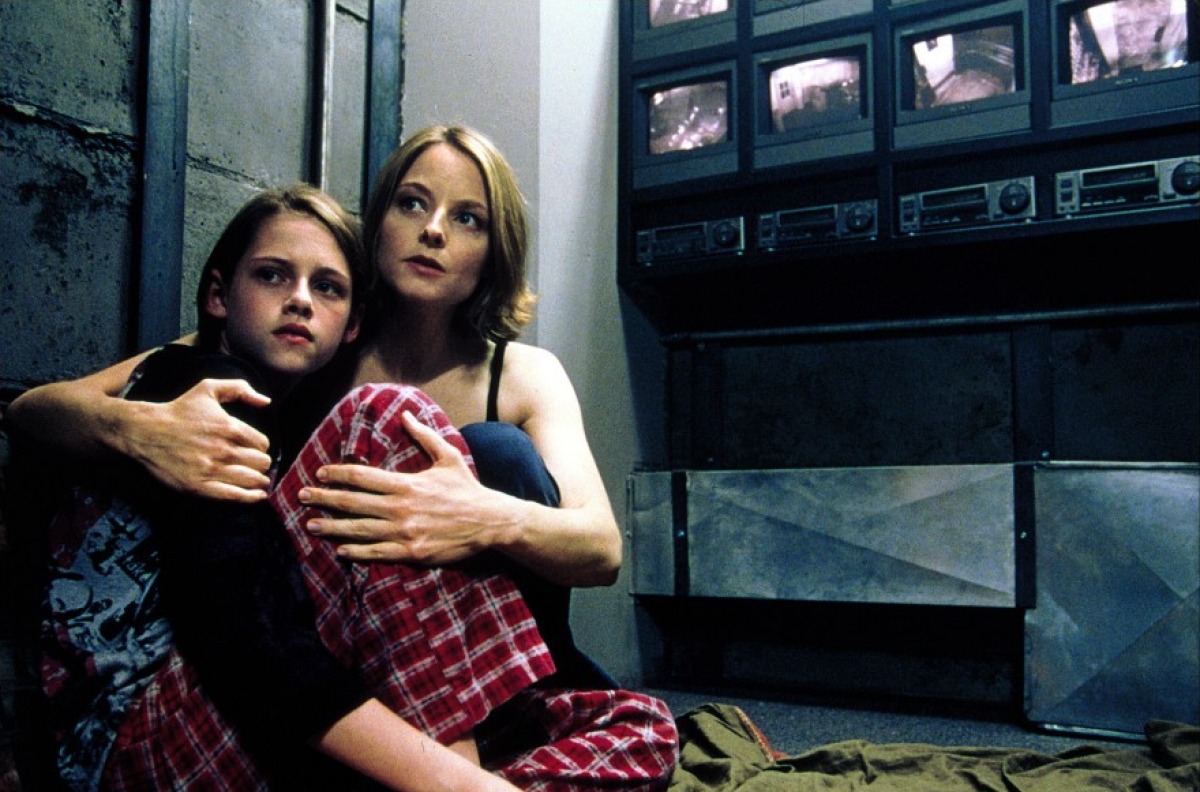
David Fincher is perhaps one of the most notable figures in cinema. Alongside his contemporaries like Spielberg and Scorsese, he is one of the few names in the industry that are instantly recognisable even to non-cinephiles. What sets him apart from the rest is his penchant for perfection, shooting an excruciating number of takes, meticulous to every last detail in the frame, resulting in a consistent filmography littered with masterpieces like The Social Network, Fight Club and Se7en and of course, Panic Room.
The film is perhaps Fincher’s simplest in terms of its premise- A mother and daughter are trapped inside their house’s panic room with three robbers attempting to break in. 5 characters, 2 protagonists and 3 antagonists and one big location. That’s it. The whole idea of characters being trapped in a single location while the stakes slowly increase is a concept done numerous times with films like Buried and All is Lost, but never before has a film feature so much complexity beneath its surface.
Aside from being visually stunning in an extremely subtle way, as do all of Fincher’s works, the incidents that occur in Panic Room flow so seamlessly from one to another despite being extremely preposterous on paper, making for a cinematic experience filled with tension, subverting our expectation with every new beat in the story.
The characters of the film, especially the antagonists, seem one-dimensional at first, being a spoiled brat with his two goons. However, very slowly, through the incidents of the film, they are revealed to be so much more. Character traits are exposed, mettles are challenged, power dynamics are reversed. All of this internal conflicts are happening and rising at the exact same time that the external conflict is, making Panic Room an undeniably fantastic thriller that deserves much more than a spot on this list. It deserves a rightful place in Fincher’s repertoire.
7. Uncle Boonmee Who Can Recall His Past Lives (IMDB Rating: 6.6/10)
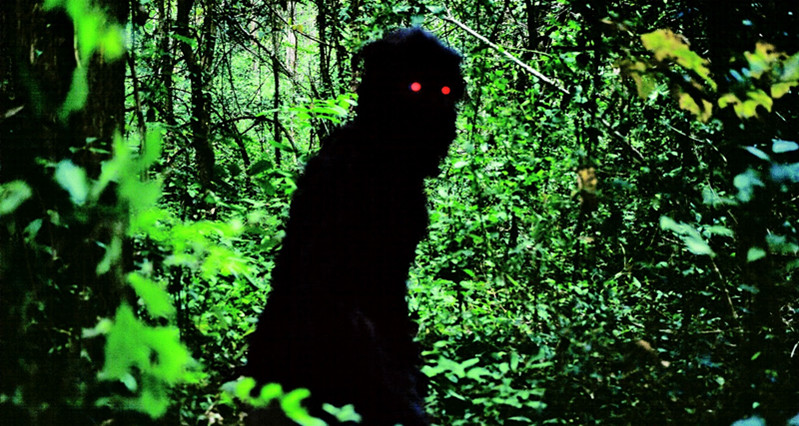
Nothing happens. Everything happens. Both statements hold true when approaching notable Thai auteur Apichatpong Weerasethakul’s Uncle Boonmee Who Can Recall His Past Lives. The film follows the titular Uncle Boonmee at the tail end of his own existence as he encounters figures from his past, from the spirit of a dead lover, to a half man, half beast son that went missing years prior. This surreal turn of events is interrupted by a sequence detailing a princess at a lake.
The plotline described above is enough to either leave you in a sea of confusion or plain disinterest. Quite frankly, the film does come across as pretentious, something an art student would come up with in his free time and the presentation, on the surface, does come across particularly so. With that being said, just consider that this seemingly pompous work of quasi-art outperformed films like Inarittu’s Biutiful as well as Kiarostami’s Certified Copy at the 2010 Cannes Film Festival for the coveted Palme D’or, a decision that is arguably questionable but respectable without a shadow of a doubt.
There’s quite truthfully nothing to be said about the film that can be set in stone. Any form of analysis or dissection whatsoever is purely an opinionated statement and not to be taken as overtly factual. Weerasethakul set out to craft a subjective experience, not one that embraces character perspective, but our own perspectives as an audience.
The result is something almost straight from a dream. The visuals, though simple and nothing particularly striking, captures the almost ethereal essence of mortality. The rural Southeast Asian landscape washed out by the twilight and faint glow of cheap gas lamps evokes a feeling unlike any other. Death. It illustrates the facets of death, the melancholia stemming from it to the absurdities of life and the poeticism of being.
Though it very much seems like a bewildering cacophony of ideas thrown around by a filmmaker without the intellectual capacity to make sense of it all, and that very well may be true, Uncle Boonmee Who Can Recall His Past Lives is a film not to be judged by the strength (or lack thereof) of its narrative, which was what the masses clearly did, it is to be judged as an overall immersive experience, and as a film which can so disturbingly express the transcendence of what it means to be on your death bed, it is certainly one that more than succeeds in its intent.
6. Under the Skin (IMDB Rating: 6.3/10)

An avant-garde art film that draws heavily from the delicate surreal themes of 70s British Cinema, Under the Skin follows Scarlett Johansson as a humanoid alien as she attempts to assimilate into our world.
The film is undeniably abstract, featuring little to no dialogue as well as numerous surrealistic sequences that would put even the likes of Lars von Trier to absolute shame. What’s brilliant about the film is that the sequence of seemingly disjointed events, no matter how high-brow and pretentious they seem, all ultimately serve a layered purpose beyond what they appear to be on face value and are not without meticulous thought by the filmmakers.
The film also compensates the predominant lack of dialogue for magnificently hypnotic sound design. Sounds are amplified and reduced, focused down and ignored, forging a truly subjective perspective even without the character speaking.
The score is haunting and for the most part, seems almost fitting for an otherworldly horror film, but when put in context with the film’s visuals, the result is almost uncanny, evoking emotions of unease within audiences, but above it all, there’s a powerful sense of poetry to the harsh, screeching noise, one that speaks to us on a deeper, more banal emotional level, even if it seems outwardly off-putting.
Under the Skin, being a character study, features an absolutely phenomenal performance by Scarlett Johansson. Between Lost in Translation, The Avengers, and this, portraying completely distinct characters in each- from a youthful starry-eyed 20-something, to a valiant heroine, to a convincing alien, her dynamic range has proven to be beyond sublime, and even more so with this film.
Being able to convey so much inner-thought and emotion while expressing basically a lack thereof is no easy feat and a true testament to her surprisingly underrated ability as an actor. Under the Skin is frankly worth watching solely for her performance alone, despite there being undeniably a myriad of other factors at play which alleviate the film’s quality, all giving some form of sense to the otherwise senseless narrative.
If abstract and hypnotic cinematic experiences like Tarkovsky’s Mirror or Hertzfeldt’s Its Such A Beautiful Day can net critical acclaim with IMDB scores of over 8.0, it comes as an absolute travesty that Under the Skin has a 6.3. Though not near the same level of quality as the other two mentioned, it’s certainly an immersive experience that, like with Johansson’s character, transports you to a world beyond your own.